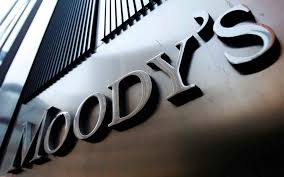Moody’s investors service has lauded the move by Kenya to remove a cap on commercial lending rates that has been in place since September 2016.
According to Moody’s, the removal of the rate cap will no longer constrain bank lending, a credit positive.
“Because banks are able to better price their risks without a rate cap, we expect higher overall loan growth over the next 12-18 months and increased lending to segments of the economy that have had subdued growth and access to credit, primarily small and midsize enterprises (SMEs) in sectors like trade and real estate,” said the rating agency in a statement issued in Nairobi on Friday.
In a statement, the rating agency said that it expected to higher overall loan growth over the next 12-18 months and increased lending to segments of the economy that have had subdued growth and access to credit, primarily small and midsize enterprises (SMEs) in sectors like trade and real estate.
The cap on lending rates since September 2016 has been one of the main reasons for low credit growth. Although deposits grew by 29 percent between September 2016 to July 2019, rather than provide loans, banks chose to invest in less risky, more liquid government securities.
In 2016, President Uhuru Kenyatta signed a bill into law that will cap high-interest rates offered by Kenyan banks at 4 percent above the Central Bank Benchmark Rate which currently stands at 10.5 percent.
Before the capping of the interest rates, Kenyan banks were charging as high as 24 percent with many Kenyans accusing the banks of being exploitative.
This led to the mushrooming of Shylocks and other unregulated lenders who took advantage of the effects of capping to lend to desperate citizens at exorbitant rates in a predatory manner, compounding the already existing problem.
On Thursday, Kenyatta signed into law the Finance Bill 2019 that among other provisions repeals the banking act that provides for the capping of bank interest rates.
“The repeal of section 33b of the Banking Act is expected to enhance access to credit by the private sector especially the Micro, Small and Medium Enterprises (MSME’s) as well as cut out exploitative Shylocks and other unregulated lenders,” said Kenyatta.
JK/as/APA


